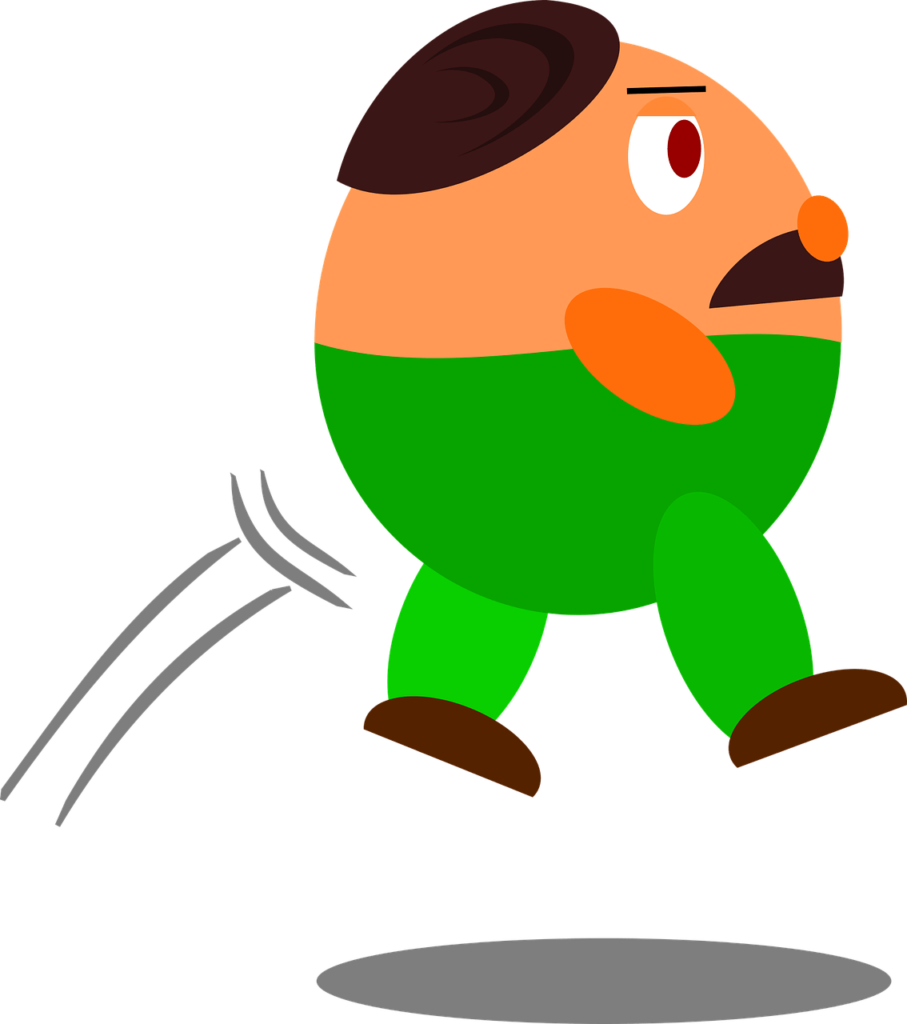Essential Skills for Game Development
Welcome to “Essential Skills for Game Development,” where we’ll explore the vital skills required to create captivating video games. Whether we’re budding developers or seasoned pros, understanding the key competencies that drive successful game creation can open up a world of limitless creativity and innovation.
In this exploration, we’ll discover the importance of mastering programming languages, embracing artistic and design principles, and honing project management abilities. These essential skills empower us to build immersive experiences that captivate players and push the boundaries of interactive entertainment. Let’s delve into the core proficiencies every game developer needs to succeed in this exciting and ever-evolving field. Have you ever wondered what essential skills are needed for game development? Game development is an intriguing field that combines storytelling, artistry, and advanced technical skills. It’s an exciting yet challenging domain where creativity meets technology, making it essential to have a balanced skill set to succeed. Let’s dive into the essential skills for game development and why each of them is crucial.

Understanding Game Development
Before we get into the specifics, let’s break down what game development entails. At its core, game development is the process of creating a video game from concept to completion. This involves various stages, including conceptualizing the game, planning, designing, programming, testing, and, finally, releasing it to the market.
Conceptualization and Planning
Every great game starts with an idea. In this stage, we brainstorm concepts, themes, and game mechanics. Once we settle on a winning idea, we move on to planning. Effective planning involves outlining the game’s storyline, characters, levels, and overall objectives.
Design
Design is a multi-faceted stage that includes both game design and level design. Game design focuses on the overall structure and rules, while level design focuses on the layout and progression within each level or stage of the game.
Programming
Programming is where the rubber meets the road. We translate our game design into a playable game using various programming languages and tools. This stage requires a deep understanding of coding and logic.
Testing
Testing is an indispensable part of game development. We conduct multiple rounds of testing to identify and fix bugs, ensure smooth gameplay, and optimize performance.
Release and Post-Release
Finally, we release the game to the public and continue to support it with updates and patches. This stage often involves marketing efforts to ensure the game reaches its intended audience.
Essential Skills for Game Development
Now that we understand the stages involved in game development, let’s explore the essential skills needed at each stage.
1. Creativity and Innovation
Creativity is at the heart of game development. Whether it’s conceptualizing a unique game world or designing innovative game mechanics, creativity drives the entire process. Innovation, on the other hand, helps us stand out in a crowded market.
How to Cultivate Creativity
- Regular brainstorming sessions
- Encouraging out-of-the-box thinking
- Drawing inspiration from various art forms
2. Storytelling and Narrative Skills
A compelling narrative can make a game unforgettable. This includes developing interesting plots, complex characters, and engaging dialogues.
Elements of a Great Game Story
| Element | Description |
|---|---|
| Plot | Central elements and storyline |
| Characters | Protagonists, antagonists, and supporting characters |
| Setting | The world where the story unfolds |
| Conflict | The challenges and obstacles characters face |
| Resolution | How the story concludes |
3. Technical Skills and Programming
Programming is a critical skill for game development. Understanding different programming languages and tools can significantly ease the development process.
Essential Programming Languages
| Language | Best For |
|---|---|
| C++ | High-performance games |
| C# | Unity-based games |
| JavaScript | Browser-based games |
| Python | Prototyping and scripting |
| Java | Android game development |
4. Art and Design
A visually striking game can capture the audience’s attention instantly. This involves skills in graphic design, 3D modeling, animation, and user interface design.
Key Design Software
| Software | Purpose |
|---|---|
| Adobe Photoshop | 2D art and textures |
| Blender | 3D modeling and animation |
| Unity | Game engine for 2D and 3D games |
| Unreal Engine | High-end graphics and complex simulations |
| Sketch | UI and UX design |
5. Sound Design and Music
Sound effects and music play a crucial role in setting the tone and enhancing the gaming experience. Understanding the fundamentals of sound design and having an ear for music can be invaluable.
Aspects of Sound Design
- Sound Effects: Footsteps, weapon sounds, ambient noises
- Background Music: Setting the mood for different game levels
- Voice Acting: Bringing characters to life through dialogue
6. Problem-Solving Skills
Game development is rife with challenges. From coding errors to design inconsistencies, being a good problem solver is essential.
Steps to Effective Problem-Solving
| Step | Action |
|---|---|
| Identify | Recognize the problem |
| Analyze | Understand the root cause |
| Brainstorm | Generate possible solutions |
| Implement | Apply the best solution |
| Evaluate | Assess the outcome |
7. Project Management
Managing a game development project requires organizational skills. This involves ensuring deadlines are met, resources are efficiently utilized, and communication is clear within the team.
Project Management Tools
| Tool | Purpose |
|---|---|
| Trello | Task management |
| JIRA | Bug tracking and agile project management |
| Asana | Team collaboration and project tracking |
| Slack | Team communication |
| Google Drive | File sharing and collaboration |
8. Collaboration and Teamwork
Game development is rarely a solo endeavor. It usually involves collaborations with other developers, designers, and artists. Teamwork makes the dream work, and strong communication skills can greatly enhance collaboration.
Tips for Effective Collaboration
- Regular team meetings to ensure everyone is on the same page
- Using collaborative tools like GitHub for version control
- Encouraging an open culture where team members can freely share ideas
9. Marketing and Business Acumen
An excellent game won’t succeed if no one knows about it. Basic marketing skills and an understanding of the business aspect of game development can help ensure widespread recognition and commercial success.
Essential Marketing Strategies
| Strategy | Purpose |
|---|---|
| Social Media | Engaging with potential players |
| Press Releases | Announcements and news |
| Email Marketing | Direct communication with interested parties |
| Influencer Collaboration | Reaching a broader audience through influencers |
| Paid Advertising | Promoted content to reach a wider audience |
10. User Experience (UX) Design
Ensuring a seamless and enjoyable gaming experience for users is paramount. This involves understanding user behavior, creating intuitive interfaces, and continuously improving based on feedback.
Core UX Principles
| Principle | Explanation |
|---|---|
| Usability | Easy to navigate and understand |
| Accessibility | Inclusive design for all users |
| Responsiveness | Quick and adaptive interface |
| Feedback | Providing users with clear, immediate responses |
| Consistency | Maintaining a consistent design and experience |
Specialized Roles in Game Development
Game development involves numerous specialized roles, each contributing in their unique way. Understanding these roles can provide a clearer idea of where you might fit in best.
Game Designer
Game designers are the visionaries who create the game’s core mechanics and rules. They ensure the game is challenging yet enjoyable.
Game Programmer
Game programmers write the code that turns concepts into functional games. They work closely with designers and artists to implement features and solve technical challenges.
Game Artist
Game artists create the visual elements of the game, including characters, environments, and textures. They use various tools and software to bring the game’s visual aspects to life.
Sound Designer
Sound designers produce all the audio aspects of the game, including sound effects, background music, and voiceovers. They play a crucial role in setting the mood and enhancing user engagement.
QA Tester
Quality Assurance (QA) testers ensure the game is free of bugs and offers a smooth gameplay experience. They test every aspect extensively and provide feedback for improvements.
Producer
Producers manage the project and the team, ensuring everything stays on track and within budget. They handle deadlines, milestones, and communication between different departments.
Learning Resources for Game Development
Acquiring these skills often involves a combination of formal education and self-study. Here are some of the best resources for learning game development:
Online Courses
| Platform | Description |
|---|---|
| Coursera | Wide range of game development courses from universities |
| Udemy | Affordable courses on various game development tools |
| edX | Professional courses and certifications |
| Khan Academy | Free tutorials on basic programming and more |
Books
| Title | Author | Description |
|---|---|---|
| “Game Programming Patterns” | Robert Nystrom | Techniques for solving common game development problems |
| “The Art of Game Design: A Book of Lenses” | Jesse Schell | Comprehensive guide on game design principles |
| “Clean Code” | Robert C. Martin | Essentials of writing clean, maintainable code |
| “Unity in Action” | Joe Hocking | Practical guide to developing games using Unity |
Forums and Communities
| Community | Description |
|---|---|
| Stack Overflow | Q&A site for programming challenges |
| Unity Forum | Dedicated forum for Unity users |
| GameDev.net | General game development discussion and resources |
| Reddit (/r/gamedev) | Community for sharing tips and getting feedback |
Software and Tools
Knowing the right tools can streamline the development process significantly. Here’s a list of essential software and tools for game development:
Game Engines
| Engine | Description |
|---|---|
| Unity | Versatile for both 2D and 3D games |
| Unreal Engine | Advanced graphics and simulations |
| Godot | Open-source and highly flexible |
| CryEngine | Known for producing visually stunning games |
Art and Design Tools
| Tool | Purpose |
|---|---|
| Photoshop | 2D art and texturing |
| Substance Painter | Texturing 3D models |
| Maya | 3D modeling and animation |
| ZBrush | Detailed 3D sculpting |
Sound Design Tools
| Tool | Description |
|---|---|
| Audacity | Free, open-source audio editor |
| FL Studio | Digital audio workstation for music creation |
| FMOD | Game audio middleware |
| Wwise | Advanced sound engine for games |

Path to a Game Development Career
The journey to a career in game development can be as varied as the games themselves. Here’s a rough guide to get started:
Education
Many aspiring game developers begin with a formal education in computer science, game design, or digital arts. Universities and colleges offer specialized degrees, but plenty of online courses can also serve as an entry point.
Building a Portfolio
Creating a strong portfolio is crucial. This could include personal projects, contributions to open-source games, or work done during internships. Platforms like GitHub can be excellent for showcasing your coding projects.
Networking
Networking within the industry can provide invaluable opportunities. Attending game development conferences, participating in online forums, and joining relevant social media groups can help you make connections.
Staying Updated
The game development industry evolves rapidly, and staying updated with the latest trends, tools, and technologies is important. Subscribing to industry publications and following influential figures on social media can keep you in the loop.
Conclusion
Game development is an exciting field that requires a diverse skill set. From creativity and storytelling to technical acumen and teamwork, each skill plays a crucial role in bringing a game to life. By understanding and developing these essential skills, we can create engaging, impactful games that captivate players and push the boundaries of interactive entertainment. Whether you’re just starting or looking to sharpen your existing skills, the world of game development offers endless opportunities for creativity, innovation, and growth.
So, gear up and dive into the fascinating journey of game development—your next great game might just be around the corner!


